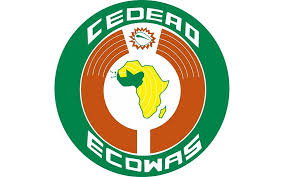By Sunday Isuwa, Abuja
The Economic Community of West African States (ECOWAS) Community Court of Justice has ruled against the Federal Government of Nigeria in relation to human rights abuses during the #EndSARS protest. The court specifically highlighted the disproportionate use of force at the Lekki Toll Gate in Lagos on October 20, 2020.
Issued on July 10, 2024, the ruling requires the Nigerian government to compensate each victim named in the lawsuit with a total of N10 million. The case was brought before the ECOWAS Court by a coalition of human rights activists and organizations, with Amnesty International also submitting an Amicus Brief.
After a thorough examination of evidence and testimonies, the Court determined that the Nigerian government’s actions violated several international human rights standards, including Articles 1, 5, 6, 9, 10, and 11 of the African Charter on Human and Peoples’ Rights.
The Court found credible evidence of disproportionate use of force, violations of the right to liberty and security, assembly, free speech, and dignity. It emphasized that the use of force was unnecessary and contrary to Nigeria’s obligations under the African Charter.
Moreover, the Court concluded that the Nigerian government failed to allow and respect the rights to freedom of expression, assembly, and association, thereby violating Articles 9, 10, and 11 of the African Charter. The government’s actions were deemed inconsistent with Nigeria’s obligations under the ECOWAS Revised Treaty and the African Charter on Human and Peoples’ Rights.
The Court also criticized the investigative mechanism established by the Nigerian government to address the allegations of abuse at the Lekki Toll Gate, stating that it lacked independence and raised doubts about its credibility. Consequently, the State failed to provide an effective remedy, as required by Article 1 of the African Charter.
As a result, the Court ordered the Federal Government of Nigeria to compensate each applicant with N10 million. Furthermore, the Nigerian government is required to conduct investigations into the human rights abuses and implement the findings of those investigations. The government must provide a progress report to the Court within six months, detailing the compensation payments and the status of the inquiry.
In response to the judgment, Bolaji Gabari, the lead counsel for the applicants, emphasized the significance of the ruling for the #EndSARS movement. He called on the Nigerian government to fully comply with the Court’s orders and promptly address the systemic issues identified in the judgment.
Mojirayo Ogunlana, a counsel to the applicants, reflected on the journey to this victory, which began on December 10, 2021. She expressed satisfaction with the closure this ruling brings to the applicants and all Nigerians who witnessed the abuses on October 20, 2020.
Nelson Olanipekun, Executive Director at Gavel and the coordinating organization for the coalition, hailed the ECOWAS Court’s decision as a powerful affirmation of justice and a significant step towards healing and accountability for the Lekki Toll Gate tragedy.
Obianuju Catherine Udeh (DJ Switch), one of the applicants, expressed her unwavering belief in the truth and her shared experience of the traumatic events of October 20, 2020. She described the Court’s ruling as a glimmer of hope and a pivotal moment towards achieving justice and truth.
The ECOWAS Court’s decision highlights the vital role of regional judicial mechanisms in holding governments accountable for human rights abuses and protecting the rights of citizens. It also emphasizes the crucial advocacy role played by civil society in ensuring justice and human dignity.
On October 20, 2020, Nigerian security agents fired at peaceful and unarmed protesters at the Lekki Toll Gate in Lagos, bringing a violent end to the nationwide #EndSARS protests that had begun on October 3 in Delta State. In December 2021, three victims filed a case with the ECOWAS Court, seeking justice for themselves and all those affected by the violations.











